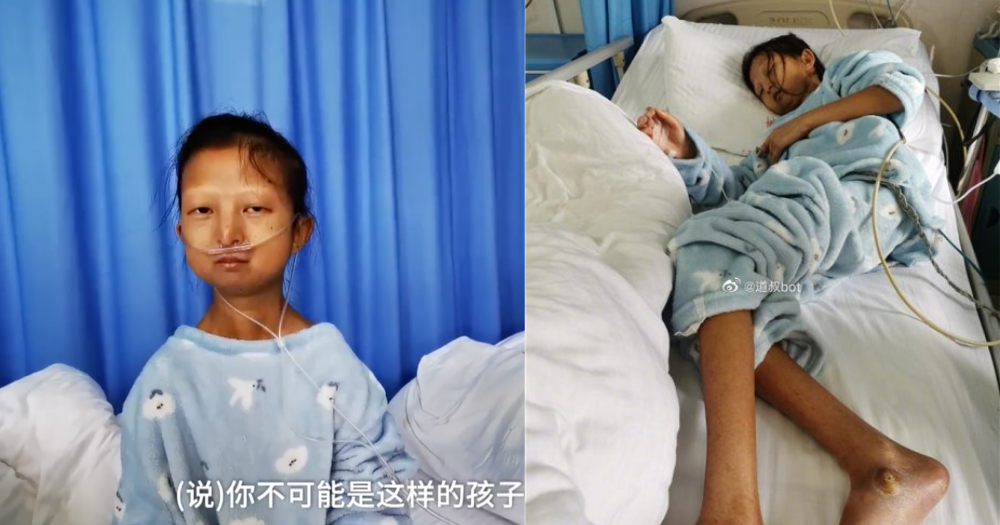A 24-year-old Chinese college student in the rural Guizhou province of China passed away due to malnutrition on January 13, 2020.
Wu Huayan had been a third-year financial management student at Guizhou Shenghua Vocational College.
On top of that, she worked two part-time jobs and spent only RMB2 (S$0.39) a day, surviving on a diet of white rice and pickled chilis, to save money for her and her younger brother, according to various Chinese news sources.
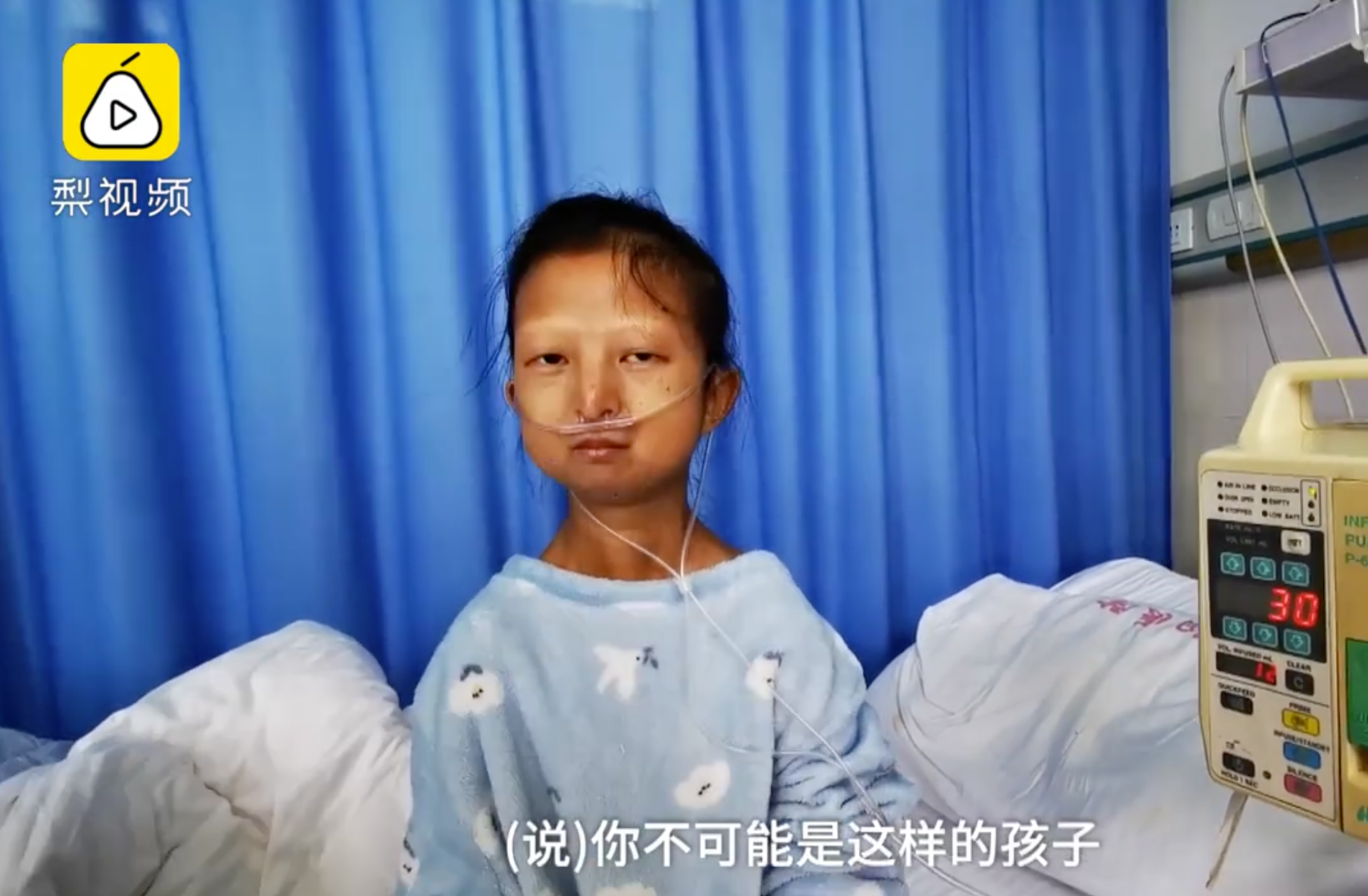 Screenshot via Pearvideo.
Screenshot via Pearvideo.
Parents passed away
Shanxi Evening News reported that Wu's mother had passed away when Wu was only four years old.
Her father then passed away in 2015 of cirrhosis, causing Wu to have to take care of her younger brother and her grandmother, who was paralysed in bed.
Their only source of income at the time was China's dibao programme, or rural minimum living standard guarantee. Shanxi Evening News wrote that local government statistics showed that the family began receiving dibao in 2015, getting between RMB496 (S$97) and RMB702 (S$137) monthly.
The same article stated that for five years, Wu's meals consisted of mainly only white rice and pickled chilis that she brought from home in order to save money.
Sacrificed health for brother's treatment
Even as Wu's health and academic performance were deteriorating, she chose not to go to the hospital because she was worried about wasting money, reported Shanxi Evening News.
Then, when her brother suffered a mental illness, Wu sent her brother to the hospital for treatment. However, the hospital fees were too expensive for them to afford, even after insurance.
Wu still needed to find a way to source the RMB5000 (S$978) of the remaining fees.
But Wu resolved to not give up on her brother, according to Shanxi Evening News, saying:
"I've already lost my father and mother. My brother is my only relative. I can't lose him as well."
Things began looking up after Wu enrolled in the university in 2017. She was able to receive more than RMB47,600 (S$9,283) in government grants, school scholarships, and teachers' donations between 2017 and 2019.
She also took up two part-time jobs, earning an additional RMB600 (S$117) per month.
Hospitalisation
However, the extended periods of malnutrition had taken a toll on Wu's body, as a high school friend of hers discovered when she visited her.
The friend found that Wu became tired while walking only 40 metres, and even had to take a break in between.
According to thepaper.cn, Wu was hospitalised for heart problems in October 2019.
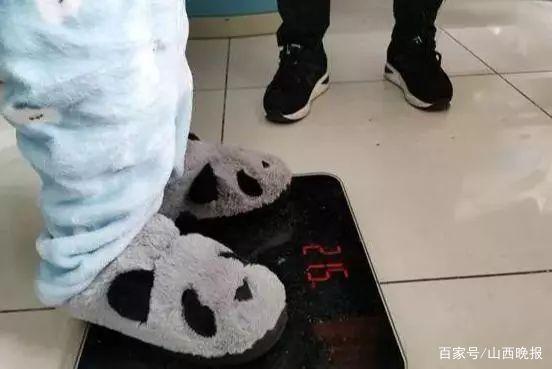 Via Shanxi Evening News.
Via Shanxi Evening News.
At 23 years old, Wu weighed only 21.5 kg and was only 1.35 metres tall.
She reportedly had eaten so little, in order to save money for her brother's medical treatment, that her eyebrows were falling off.
The doctor said that three of the valves in Wu's heart had suffered severe damage due to prolonged malnutrition, reported Shanxi Evening News, and the operation would cost more than RMB200,000 (S$39,127).
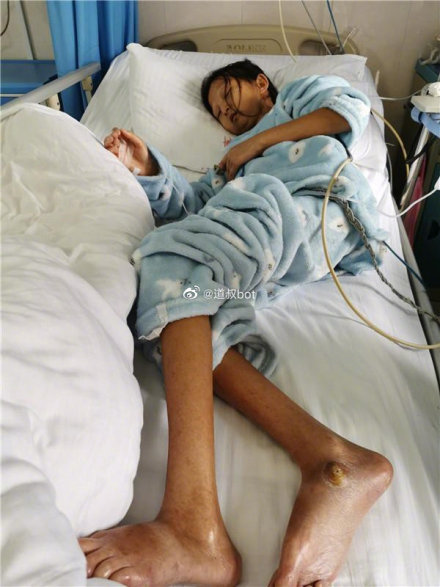 Via Weibo.
Via Weibo.
Received donations & giving back
Local media in Guizhou caught wind of Wu's plight, and within five days, more than one million RMB (S$195,656) had been raised for her through crowdfunding, according to Shanxi Evening News.
In addition, the local government provided Wu and her brother with RMB20,000 (S$3913) in emergency assistance funds.
While the money was more than enough to cover Wu's medical fees, she was unfortunately unable to restore her health.
Her last wishes for 2020 before she passed away had been to buy a few new pieces of furniture and to have a good year with her brother, reported Shanxi Evening News.
Thepaper.cn reported that Wu died of heart failure after attempts at resuscitation failed on Jan. 13.
Wu's body was donated according to her wishes to Guizhou Medical University for medical and scientific research purposes.
Wu's brother recalled through tears that his sister had always said that, despite their unfortunate family circumstances, she was warmed by the support they had received from the government, committees, and others.
Inequality in China
Guizhou is one of China's poorest provinces, with 40 per cent of its population belonging to China's various ethnic minority groups, according to the World Bank.
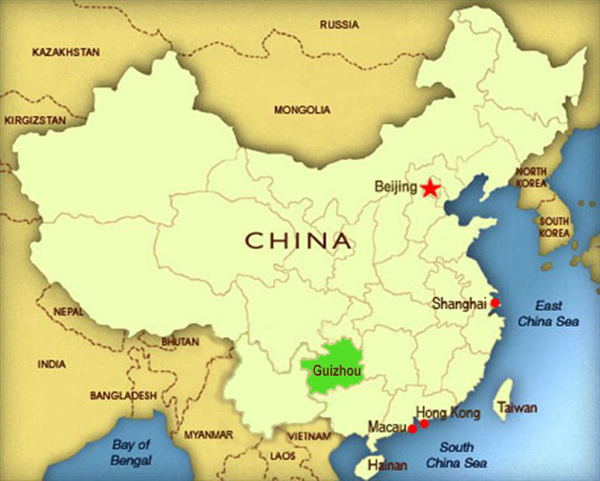 Image via chinadiscovery.com.
Image via chinadiscovery.com.
According to China Global Television Network (CGTN), which belongs to China's nationally-owned media, the government reduced the poverty rate in Guizhou from 26.8 per cent in 2013 to 4.3 per cent in 2018.
Xi Jinping announced his goal to end all of China's poverty by 2020 in a speech in 2015.
Still, China's income inequality has increased dramatically in the past few decades, going from being moderately unequal in 1990 to being "one of the world's most unequal countries" today, according to the International Monetary Fund (IMF).
The IMF added that although China has implemented some policies to try to limit inequality, such as raising the minimum wage, abolishing agricultural taxes, and improving public services and social protection for rural communities, inequality in China is likely to continue to rise if there are not additional policy changes.
Top images via Guizhou Metro Network and thepaper.cn.
If you like what you read, follow us on Facebook, Instagram, Twitter and Telegram to get the latest updates.
